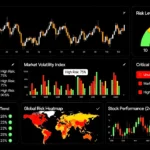In the digital transformation era, businesses are shifting profoundly in how they operate, engage with customers, and create value. Central to this evolution are digital business models, which leverage technology, data, and connectivity to innovate traditional business practices and unlock new sources of revenue and growth. From e-commerce and subscription platforms to sharing-economy platforms and digital marketplaces, digital business models are reshaping industries, disrupting incumbents, and fueling the rise of the digital economy. In this article, we examine the intricacies of digital business models, their principles, applications, and transformative impact on the global business landscape.
Understanding Digital Business Models
Digital business models span a spectrum of approaches that leverage digital technologies and platforms to create, deliver, and capture value in the digital economy. Unlike traditional business models, which rely on physical assets and linear value chains, digital business models are characterized by agility, scalability, and data-driven decision-making, enabling organizations to adapt quickly to changing market conditions and customer preferences.
E-Commerce and Direct-to-Consumer (DTC)
E-commerce and direct-to-consumer (DTC) business models involve selling goods and services directly to customers through digital channels such as websites, mobile apps, and online marketplaces. By eliminating intermediaries and storefronts, e-commerce businesses can reach a global audience, personalize customer experiences, and optimize supply chain efficiency, driving sales growth and customer loyalty in an increasingly competitive market.
Subscription and Membership Models
Subscription and membership models offer customers ongoing access to products, services, or content for a recurring fee, providing predictable revenue streams and fostering long-term relationships with subscribers. From streaming services and software-as-a-service (SaaS) platforms to subscription boxes and membership-based communities, subscription models cater to diverse needs and preferences, offering subscribers convenience, value, and exclusivity.
Platform and Marketplace Models
Platform and marketplace models connect buyers and sellers, producers and consumers, or service providers and users through digital platforms that facilitate transactions, interactions, and value exchange. Platforms like Airbnb, Uber, and Amazon enable peer-to-peer commerce, collaborative consumption, and decentralized value creation, leveraging network effects and data-driven algorithms to match supply with demand and optimize marketplace dynamics.
Applications of Digital Business Models
Digital business models find diverse applications across various industries and sectors, driving innovation, disruption, and value creation:
Retail and Consumer Goods
Digital business models are transforming how products are bought, sold, and consumed across the retail and consumer goods sectors. E-commerce platforms enable retailers to reach customers anytime, anywhere, while subscription services provide personalized, curated experiences that cater to evolving preferences and lifestyles. Digital marketplaces and direct-to-consumer brands offer choice, convenience, and transparency, empowering consumers to discover, purchase, and engage with brands on their terms.
Media and Entertainment
Digital business models are reshaping the media and entertainment landscape, transforming how content is produced, distributed, and monetized. Streaming platforms like Netflix and Spotify offer on-demand access to a vast library of movies, TV shows, and music. At the same time, subscription-based news outlets and digital publishers provide ad-free, premium content experiences. User-generated content platforms and social media networks enable creators to monetize their talent and engage directly with audiences, blurring the lines between producers and consumers of content.
Technology and Software
Digital business models drive innovation, agility, and competitiveness in the technology and software industry. Software-as-a-service (SaaS) companies deliver cloud-based solutions that enable organizations to streamline operations, enhance productivity, and scale efficiently. At the same time, platform providers offer developer tools, APIs, and ecosystems that foster innovation and collaboration. Open-source communities and digital marketplaces empower developers to create, share, and monetize software assets, driving ecosystem growth and value creation.
Advancements in Digital Business Models
Recent advancements in digital business models are fueling innovation and expanding the possibilities for organizations and entrepreneurs:
Decentralized Finance (DeFi)
Decentralized finance (DeFi) platforms leverage blockchain technology to create open, permissionless financial systems that enable peer-to-peer lending, borrowing, and trading without intermediaries. DeFi protocols, such as decentralized exchanges (DEXs), lending protocols, and liquidity pools, provide users with unprecedented access to global liquidity and financial services. At the same time, smart contracts ensure transparency, security, and trust in digital transactions.
Web3 and Decentralized Autonomous Organizations (DAOs)
Web3 technologies and decentralized autonomous organizations (DAOs) are reimagining how organizations are structured, governed, and operated in the digital age. Through decentralized governance mechanisms, DAOs enable collective decision-making, resource allocation, and value distribution, empowering participants to collaborate, contribute, and govern shared resources and protocols. Web3 applications, such as decentralized social networks, content platforms, and marketplaces, offer users greater control, ownership, and sovereignty over their digital identities and assets, fostering a more inclusive, equitable, and resilient digital economy.
Tokenization and Digital Ownership
Tokenization enables the digitization and fractionalization of real-world assets such as real estate, art, and intellectual property, creating liquid markets and unlocking new investment opportunities for individuals and institutions. Non-fungible tokens (NFTs) are unique digital assets, including digital art, collectibles, and virtual real estate. It enables creators to monetize their work and investors to own and trade digital assets with provable ownership and authenticity.
Challenges and Future Directions
Despite their potential, digital business models face several challenges and opportunities for further development:
Regulatory Uncertainty and Compliance
Navigating regulatory uncertainty and compliance requirements is a significant challenge for digital business models, as regulations often struggle to keep pace with technological innovation and market dynamics. Regulatory clarity, collaboration, and industry standards are needed to address legal, ethical, and security concerns and foster a conducive environment for innovation and responsible growth in the digital economy.
Data Privacy and Security
Data privacy and security are paramount for digital business models to maintain trust and confidence among customers and stakeholders. Robust data protection measures, encryption protocols, and transparency practices are essential to safeguard sensitive information and mitigate risks such as data breaches, cyberattacks, and privacy violations, enhancing the resilience and integrity of digital business ecosystems.
Digital Inclusion and Accessibility
Promoting digital inclusion and accessibility is critical to ensure that digital business models benefit all individuals and communities, regardless of their background or circumstances. Efforts to bridge the digital divide through education, infrastructure, and inclusive design principles can expand access to digital technologies and opportunities, fostering a more equitable, inclusive digital economy that empowers individuals to participate, contribute, and thrive.
Conclusion
Digital business models drive a fundamental shift in how value is created, exchanged, and captured in the digital economy, empowering organizations and individuals to innovate, collaborate, and thrive in an increasingly interconnected and dynamic world. By embracing digital technologies, platforms, and ecosystems, businesses can unlock new sources of growth, resilience, and sustainability, shaping the future of commerce and society. As we navigate the evolving landscape of digital business models, the journey toward innovation, disruption, and digital transformation shines brightly, guided by the promise of opportunity, inclusion, and shared prosperity.





